Soon enough, he learned how to fly and earned his pilot’s certificate on Dec. 25, 1915. In 1916, he was invited by Boelcke to join his Jasta or squadron, and he scored his first kill that same year.
The Red Baron
In late 1916, Richthofen decided to have his Albatros DIII painted entirely red. He had his 9th confirmed kill at this time. From then on, his score began to increase steadily, and he even decided to order a two-inch-high silver trophy to commemorate each of his kills. It is claimed that German pilots painted their planes as a kind of challenge to other pilots, the actual reason was one of sheer practicality. In order for a pilot to get a confirmed kill on an enemy aircraft, it had to be confirmed by either ground forces or another pilot in your squadron. Most of the dogfighting in WWI occurred over the trenches and troops watched these aerial duels like a soccer match loudly cheering for their side as they fought in the skies. An officer on the ground filing a report that he saw an Albatros DIII bring down a British SE5 would not be enough to earn a pilot a confirmed air victory, but that same officer saying he saw a red-painted Albatros bring it down would be a solid confirmation.
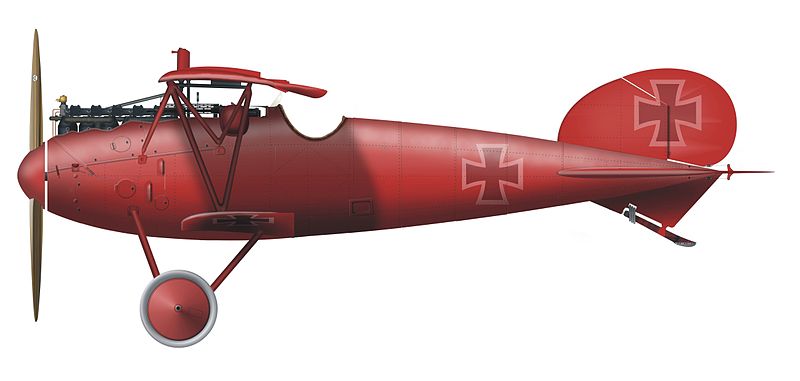
On January 24, 1917, The Red Baron had his 18th victory. He was able to bring down an English two-seater. The lower wing of his plane was damaged too, so he decided to land beside where his enemies’ plane crashed on the German side of the lines. He further wrote in his autobiography:
“I felt some human pity for my opponent and had resolved not to cause him to fall down but merely to compel him to land. I did so particularly because I had the impression that my opponent was wounded, for he did not fire a single shot.”
He stood and chatted with the two Englishmen who survived the crash, and he found out that they called him ‘Le Petit Rouge’ (“The Little Red”).
His Red Fokker Triplane Was Not The Aircraft That Made Him Famous
The Fokker DR1 or Tri-plane is the German fighter plane most people associate with the image of the Red Barron. This aircraft was designed to counter the British Sopwith Triplane that was proving itself pretty successful in shooting down German Albatrosses in combat. Richtofen had been given a prototype model to test in combat and found it to have superior turning ability to any allied aircraft including the Sopwith, despite the fact that two of Germany’s leading aces, Verner Voss and Kurt Wolff had both been killed flying the DR1 on combat missions. Wolff had been killed flying the Red Barons personal aircraft while he was away on a hunting trip.
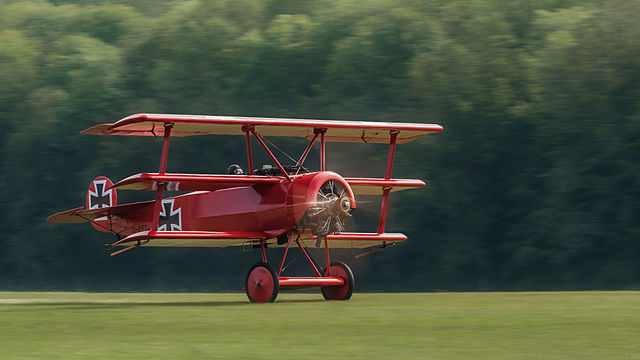
While the Dr1 was very maneuverable in the hands of a skilled pilot it could be deadly in the hands of a novice on take-offs and landings. The design went from the drawing board to production in just a few months and construction quality was substandard, to say the least. Water caused corrosion to the wing struts causing catastrophic failures in flight, the rotary engine was prone to seizure from the generally poor quality of German lubricants(mostly castor oil) and it was slower than most of the allied planes it fought. The DR1 could certainly get into a dog fight and do amazing things in skids, climbing rate, and turns, but it was not fast enough to escape from a fight with British, French, or American fighters. You either won the dog fight or you died. When it comes to Richtofen’s record of aerial victories, it was not the Dr1 that made him a legend, but the venerable Albatros. In this plane, the Baron would score nearly 50 of his 80 confirmed victories.
Most Of His Air Victories Were Not Against Fighter Planes
Contrary to legend, the Red Baron’s aerial victories were mostly slow two-seat observation aircraft and not nimble fighters. Richtofen and his squadron fought differently than other German outfits that might have preferred single combat with allied fighters in aerial fencing matches with rules of chivalry. They hunted like a pack of wolves seeking out the weakest of opponents, get in behind them, hitting their gas tank, and watching them go down burning with the crewmen in flames and jumping out. The Red Baron’s squadrons were not acrobats of the air, but ruthless and efficient killers.
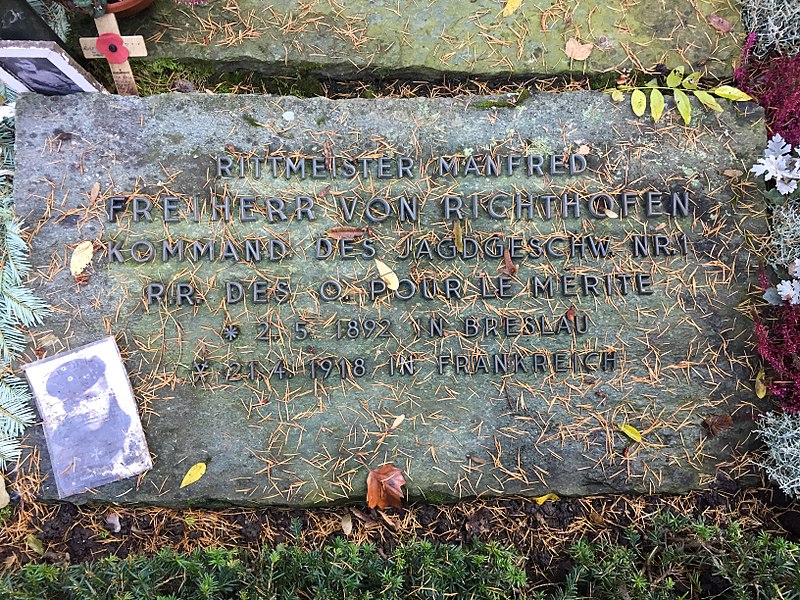
In a dogfight on July 6th, 1917, Richthofen was battling in the skies when a machine gun bullet fired by a British bi-plane grazed his head and fractured his skull. He was blinded in one eye and partially paralyzed as his plane spun out of control. He recovered his senses at nearly the last minute and was able to make an emergency landing on the German side of the lines. The injury left him with severe headaches, bouts of nausea, and depression. Basically, the Baron had suffered a severe traumatic brain injury that should have retired him. Doctors advised he be grounded, but the Baron was adamant about returning to lead his fighter group again. Given his propaganda value to the war effort, he was allowed to return to combat just a month afterward. Given the severity of the injury, there is little doubt this had an influence on the events that later resulted in his death in combat
On April 21, 1918, Richthofen led the “Flying Circus” over Vaux-sur-Somme in northern France. His 80th aerial victory had occurred just the day before when he shot down a Sopwith camel flown by a Rhodesian pilot named David Lewis. His squadron found themselves attacked by a swarm of British fighters, and in the swirling fight, Richthofen gave chase to a Sopwith Camel piloted by a rookie Canadian pilot who dove for the ground over the British lines. This would allow troops on the ground to also fire at the German aircraft as it pursued him. As the red Fokker tri-plane came in low over Allied troops, a group of Australian soldiers took aim with their rifles and opened up on the Red Baron as he passed over them. Another Canadian pilot named Arthur Brown had also got behind Richthofen and opened up with his guns as well trying to save his squadron mate. One of the bullets ripped into the Red Baron and his plane crashed near the lines. Australian troops made it to the crash site so quickly that they found the engine of the DR1 still running with a wide-open throttle and they pulled the Richthofen from the wreckage already dead. Controversy existed for decades over whether the Red Baron was killed by ground fire or by Ball who received official credit, but the autopsy of the body strongly suggests the single fatal bullet was fired from the ground. The bullet that killed Richthofen struck him in the front of his body from the left and slightly below and exited the right side about two inches higher than the entry wound. Unless the Red Baron was had turned sideways in his seat to see behind him, it would not have been possible for a bullet fired from behind him to have stuck his body that way.
While the British were certainly happy to have ended the reign of the Red Baron they still buried him with full military honors, as reported in the ‘The Times’ of 24 April 1918
‘Captain Baron von Richthofen’s funeral yesterday afternoon was a simple but impressive ceremony. The coffin, which was borne by six officers of the Royal Air Force, was deposited in ground in the corner of the French cemetery in a little village from ground near which, before the ceremony, one could look at Amiens Cathedral, standing very clear and beautiful in the afternoon sun. The English Service was read, and the last salute fired over the grave.’
At the time of his death, Manfred Albrecht Freiherr von Richthofen was just 25 years old.
He was Buried At Least Four Times And Had Five Funerals
Following the war, the French built a cemetery for German war dead in Friecourt in 1920 and his body was dug up and reburied there. Five years later, Manfreds younger brother Bolko had the body dug up again and brought it back to Germany to be buried in Schweidnitz cemetery with his father and brother Lothar. The German government asked for the body to be buried at the Invalidenfriedhof which was the equivalent of Arlington National Cemetary here in the U.S. The family agreed and he was buried again with a State funeral. With the rise of Hitler and the Third Reich another big funeral ceremony was held at the site again. Following WWII, the Invalidenfriedhof ended up on the border dividing East and West Berlin and his tombstone had been shot up by East German border guards trying to prevent defections to the West, so in 1975 the family had the body dug up again and moved to Sudfreidhof in Wiesbaden where other members of the family are buried.

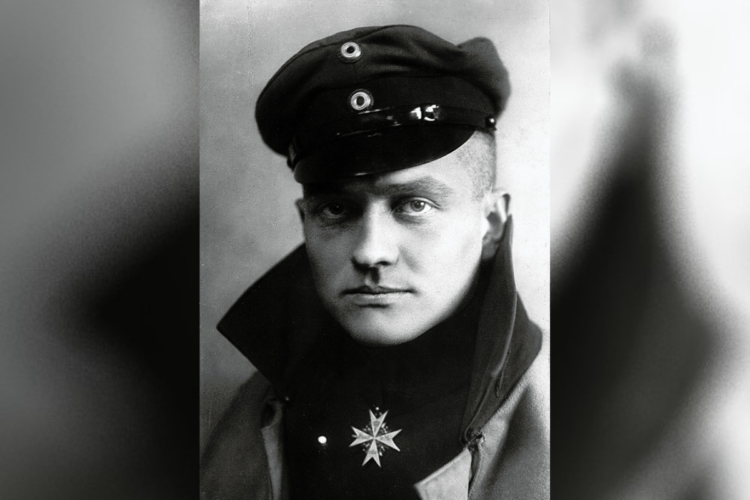
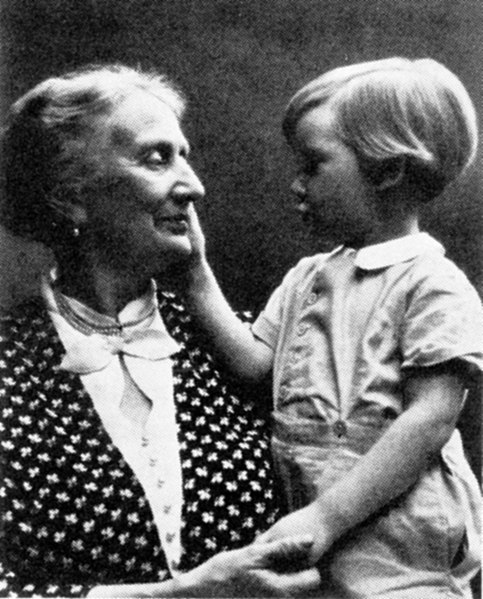








COMMENTS